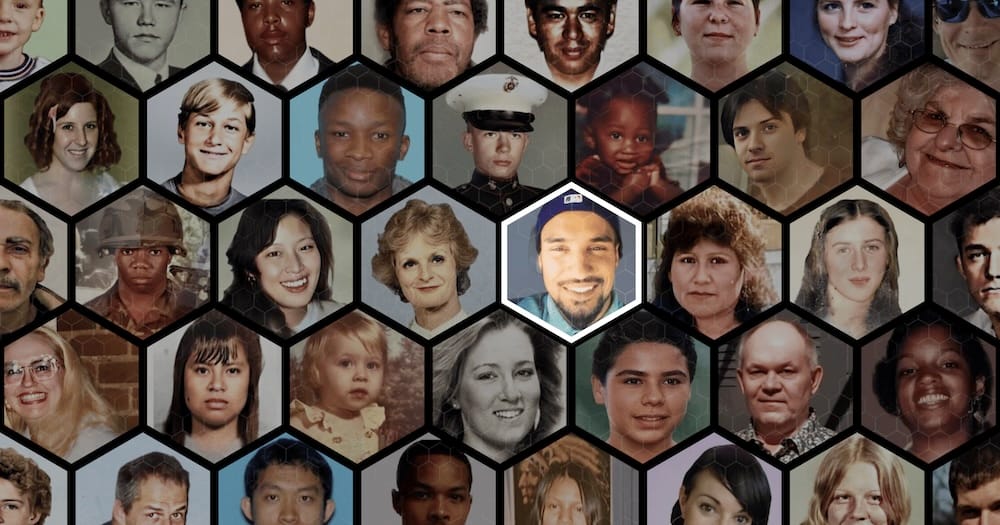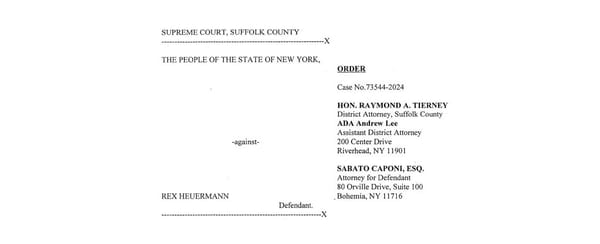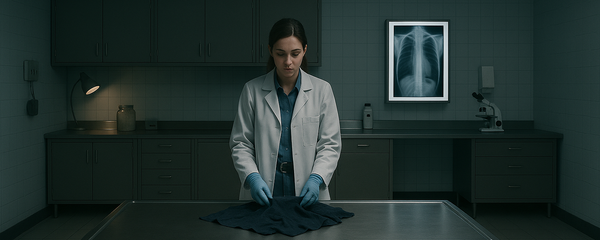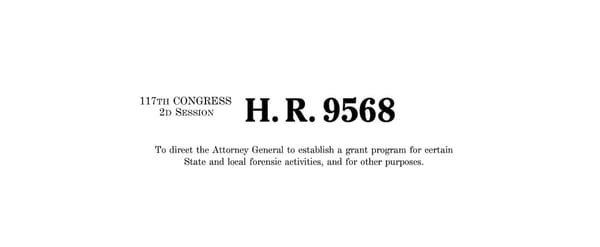Since 1965, nearly 350,000 murder and manslaughter cases have remained unsolved, while as many as 75,000 John and Jane Does remain unidentified., This number continues to grow as more than 4,400 unknown bodies are recovered each year on U.S. soil.
Recent advances in forensic DNA testing have made it possible to identify victims and suspects with remarkable success, even decades after a body is found. But these new technologies aren't being used to their full capacity – because legacy gatekeepers are unwilling to collaborate with private forensics companies that have developed these new tools.
This refusal has profound consequences. Every day that passes without identification is another day that victims' loved ones go without answers and another day that killers walk free.
In March, the nonprofit National Academy of Sciences convened a two-day workshop on law enforcement and genomics, exploring the reliability, accuracy, and impact of emerging technologies for forensic science. The subject matter experts behind these technologies are predominantly from the private sector. But workshop organizers did not include a single private-sector forensic practitioner or representative of any of the technologies being explored.
The omission of the private sector will result in an incomplete assessment. And because government bodies often view NAS reports as the authoritative word on technological matters, the forthcoming flawed report will have a lasting -- and likely detrimental -- impact on the adoption of critical new tools that could help make communities safer.
In fields ranging from computing to electric cars, private firms -- not nonprofits, universities, or the government -- drive innovation., Private-sector tax preparation software achieved CPA-level sophistication at least a decade before the IRS started testing its own Direct File program in a dozen states this year., SpaceX's capabilities increasingly rival or even surpass NASA's.
Forensic science is no exception. Our two companies, Bode Technology and Othram, are leaders in the field and have contributed to the identification of several thousand missing persons and violent offenders in just the past few years with best-in-class technologies.,
The contribution of the private sector goes back decades. In the aftermath of the 9/11 attacks, private forensics teams worked under contract with the New York City Office of the Chief Medical Examiner to help identify some 20% of victims by utilizing then-new technology to recover genetic information from minuscule DNA samples.
Many scientists working at private forensics labs were participants in the groundbreaking Human Genome Project 20 years ago. A decade after the Human Genome Project, these scientists played a role in the public-private partnerships that gave rise to standards and metrics for DNA testing for medical diagnostics.
Fast forward to today, private firms, including ours, are conducting numerous federally funded research projects focused on improving the state of forensic science. The findings from these studies are shared freely with the forensic community, further highlighting the lost opportunity caused by the NAS omission.
Closing cold cases is vitally important. Private companies can help and already do so every day. We would be even more effective at bringing justice to victims and closure to families if forensic science gatekeepers would embrace private sector investment and technology.
David Mittelman is the CEO of Othram, a private forensic DNA laboratory specializing in genome sequencing to facilitate advanced applications such as forensic genetic genealogy. Mike Cariola is the CEO of Bode Technology, one of the largest private forensic DNA laboratories in the United States offering forensic DNA products and services.





